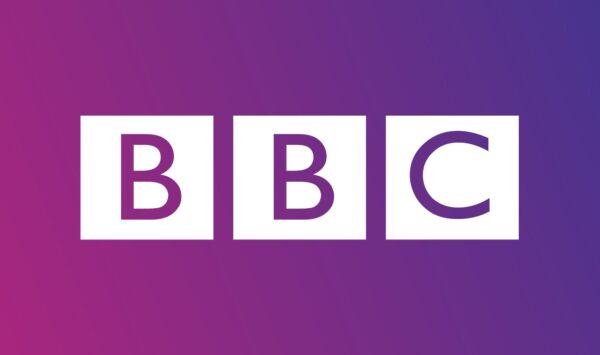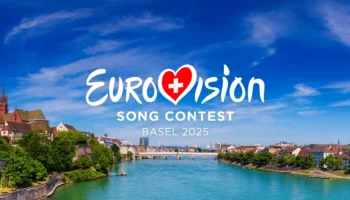The EBU has announced today that the United Kingdom and the BBC will host the 2023 Eurovision Song Contest next year in collaboration with the Ukrainian national broadcaster UA:PBC.
The BBC and the UK have accepted the EBU’s invite to host the 2023 Eurovision Song Contest next year.
Due to the on going war afflicting Ukraine, the 2022 Eurovision winning country will not host the 2023 Eurovision Song Contest. The Ukrainian national broadcaster UA:PBC and the BBC have agreed to host the forthcoming 2023 Eurovision in the United Kingdom.
The BBC and UA:PBC will be joining forces to to integrate Ukrainian elements at next year’s competition. The 2023 Eurovision Song Contest and the official logo will be revealed in due time and will be a fusion depicting the characteristics of the 2023 Eurovision host country and the 2022 Eurovision winner Ukraine.
Ukraine will be partaking in the Grand Final next year as the winning country at this year’s and will be joining the BIG 5 countries ( United Kingdom, France, Germany, Italy and Spain).
This will be ninth time the United Kingdom will be hosting the competition, and the fifth time the nation will be stepping in to host the contest for another country.
Martin Osterdahl (Eurovision Song Contest Executive Supervisor/ EBU) says:
We’re exceptionally grateful that the BBC has accepted to stage the Eurovision Song Contest in the UK in 2023.
The BBC has taken on hosting duties for other winning countries on four previous occasions. Continuing in this tradition of solidarity, we know that next year’s Contest will showcase the creativity and skill of one of Europe’s most experienced public broadcasters whilst ensuring this year’s winners, Ukraine, are celebrated and represented throughout the event.
Mykola Chernotytskyi ( Head of UA PBC Managing Board) says
The 2023 Eurovision Song Contest will not be in Ukraine but in support of Ukraine. We are grateful to our BBC partners for showing solidarity with us.
I am confident that together we will be able to add Ukrainian spirit to this event and once again unite the whole of Europe around our common values of peace, support, celebrating diversity and talent.
Tim Davie (BBC Director General says)
It is a matter of great regret that our colleagues and friends in Ukraine are not able to host the 2023 Eurovision Song Contest. Being asked to host the largest and most complex music competition in the world is a great privilege.
The BBC is committed to making the event a true reflection of Ukrainian culture alongside showcasing the diversity of British music and creativity.
The BBC will now begin the process to find a host city to partner with us on delivering one of the most exciting events to come to the UK in 2023.
Kate Phillips (Unscripted BBC Director) says:
We are honoured that we have been asked to take on hosting duties for the 67th Eurovision Song Contest on behalf of Ukraine. Clearly the set of circumstances our colleagues find themselves in is not what we wanted but we will work with UA: PBC and the other participating broadcasters to deliver a special event that has glorious Ukraine at its heart.
The 2023 Eurovsion Song Contest Semi-finals and Grand Final will be produced by BBC Studios.
Eurovision 2023 Host City Bidding Race kicks off
The BBC and the EBU will be officially kicking off the 2023 Eurovision Song Contest Host City race this week, inviting cities in the United Kingdom to officially submit their bids.
A large number of British cities have so far shown their interest in hosting the competition next year including:
- Manchester
- London
- Glasgow
- Aberdeen
- Bristol
- Cardiff
- Sheffield
- Leeds
- Newcastle
- Birmingham
- Brighton
- Belfast
- Liverpool
- Nottingham
- Wolverhampton
It is yet unclear if all the cities will officially submit their bids to the BBC and how many of them will comply with the hosting requirements.
The official list of the bidding cities will be released through the course of the summer. The 2023 Eurovision host city and the official dates of the competition are expected to be unveiled by Autumn.
Source: EBU/BBC/ESCToday
Photo credit: BBC




